CBMDA Referral Scheme
CBMDA Referral Scheme
How to apply to a UK university
1. Find a course: Please select CBMDA UK partnered university from the list below and visit the university website.
2. Prepare and submit your application: The application process differs for undergraduate and postgraduate degrees.
-
If you wish to apply for an undergraduate degree, you will need to submit your undergraduate application via UCAS (Universities and Colleges Admissions Service).
-
If you wish to apply for a postgraduate degree, you will need to apply directly to the university via their own online application system. Contact CBMDA with your chosen university to find out more.
3. Check you are eligible for a UK student visa. Read our information on the Tier 4 Student Visa to make sure you are aware of the requirements in advance.
China Entry Requirements at UK Universities
Undergraduate Chinese Students (First Degree)
Postgraduate Chinese Students (Second Degree)
Remember, you can contact the international office at your chosen universities via CBMDA and we will tell you if your qualifications meet the requirements of your chosen course.

Chinese Medical and Dental Candidates
Please contact CBMDA to find out more…
– obtain UK university granted certificates via CBMDA Medical and Dental programmes.
– obtain the license to practise medicine or dentistry in the UK by passing PLAB or ORE exams.

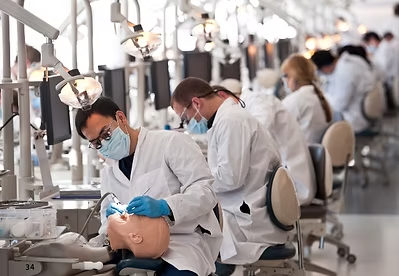
CBMDA Referral Scheme
An application form will be sent to your email address upon confirmation of your qualifications
CBMDA Referral Scheme Candidates
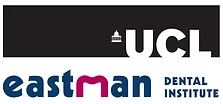
UCL Eastman Dental Institute
London, United Kingdom
UCL Eastman Dental Institute is a world-leading, academic centre for postgraduate dentistry and translational research, based in London UK. Eastman offers an extensive range of high-quality, postgraduate study opportunities including Master's degrees, specialty training, certificates, diplomas, research-informed degrees and CPD courses. Its clinically-intensive programmes are led by international specialists. UCL is also a world-class, research centre offering a range of doctorates. They are continually improving systemic and oral heath through the innovative development of novel treatments, therapies, diagnostics and smart materials.
UCL Eastman Dental Institute is the largest postgraduate education centre in Europe. World ranking 6th in Dentistry. In 2018, University College London (UCL) was ranked 3rd in the UK following Cambridge and Oxford and 7th worldwide.
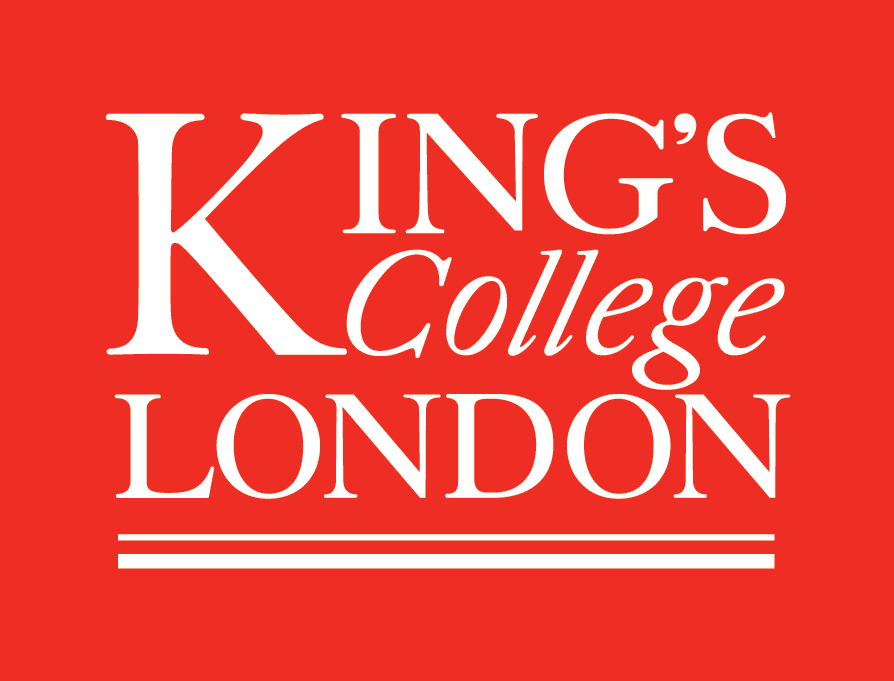
UCL Eastman Dental Institute
London, United Kingdom
UCL Eastman Dental Institute is a world-leading, academic centre for postgraduate dentistry and translational research, based in London UK. Eastman offers an extensive range of high-quality, postgraduate study opportunities including Master's degrees, specialty training, certificates, diplomas, research-informed degrees and CPD courses. Its clinically-intensive programmes are led by international specialists. UCL is also a world-class, research centre offering a range of doctorates. They are continually improving systemic and oral heath through the innovative development of novel treatments, therapies, diagnostics and smart materials.
UCL Eastman Dental Institute is the largest postgraduate education centre in Europe. World ranking 6th in Dentistry. In 2018, University College London (UCL) was ranked 3rd in the UK following Cambridge and Oxford and 7th worldwide.
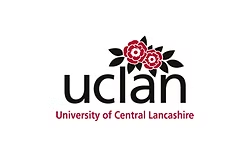
University of Central Lancashire
Preston, Lancashire
The University of Central Lancashire (UCLan) in Preston was founded in 1828 as the Institution for the Diffusion of Knowledge. ‘Ex solo ad solem’, or in translation, ‘From the Earth to the Sun’, has been its motto ever since – helping people from all walks of life to make the most of their potential is what UCLan’s all about.
Today UCLan is one of the UK’s largest universities with a student and staff community approaching 38,000. Internationally the University of Central Lancashire has academic partners in all regions of the globe and it is on a world stage that the first-class quality of its education was first recognised. The University has an increasingly thriving campus in Cyprus delivering UCLan programmes and original research within a UCLan environment and culture.

University of Manchester
Manchester, United Kingdom
The University of Manchester (UoM) is a public research university in Manchester, England, formed in 2004 by the merger of the University of Manchester Institute of Science and Technology and the Victoria University of Manchester. The University of Manchester is a red brick university, a product of the civic university movement of the late-19th century.

University of Bristol
Bristol, United Kingdom
Bristol is one of the most popular and successful universities in the UK and was ranked within the top 50 universities in the world in the QS World University rankings 2016.
Bristol is organised into six academic faculties composed of multiple schools and departments running over 200 undergraduate courses largely situated in the Tyndalls Park area of the city. The university had a total income of £565.8 million in 2015/16, of which £146.2 million was from research grants and contracts. It is the largest independent employer in Bristol.

Newcastle University
Newcastle upon Tyne, United Kingdom
Newcastle University (Officially, the University of Newcastle upon Tyne) is a public research university located in Newcastle upon Tyne in the North-East of England. The university can trace its origins to a School of Medicine and Surgery (later the College of Medicine), established in 1834, and to the College of Physical Science (later renamed Armstrong College), founded in 1871. These two colleges came to form one division of the federal University of Durham, with the Durham Colleges forming the other. The Newcastle colleges merged to form King's College in 1937. In 1963, following an Act of Parliament, King's College became the University of Newcastle upon Tyne.

Queen Mary University of London
London, United Kingdom
Queen Mary University of London is one of the UK's leading research-focused higher education institutions. With 21,187 students, 4,000 staff and an annual turnover of £400m, we are one of the biggest University of London colleges.
We teach and research across a wide range of subjects in the humanities, social sciences, law, medicine and dentistry, and science and engineering. Based in a creative and culturally diverse area of east London, our main site in Mile End is one of the largest self-contained residential campuses in the capital.

University of Liverpool
Liverpool, United Kingdom
The University of Liverpool is a public university based in the city of Liverpool, England. Founded as a college in 1881, it gained its royal charter in 1903 with the ability to award degrees and is also known to be one of the six original "red brick" civic universities. It comprises three faculties organised into 35 departments and schools. It is a founding member of the Russell Group, the N8 Group for research collaboration and the University Management school is AACSB accredited.
Nine Nobel Prize winners are amongst its alumni and past faculty and the university offers more than 230 first degree courses across 103 subjects. It was the world's first university to establish departments in Oceanography, civic design, architecture, and biochemistry at the Johnston Laboratories.

University of Leeds
Leeds, United Kingdom
The University of Leeds is a redbrick university located in Leeds, West Yorkshire, England, established in 1831. Originally named the Yorkshire College of Science and later simply the Yorkshire College, it incorporated the Leeds School of Medicine and became part of the federal Victoria University alongside Owens College (which eventually became the University of Manchester) and University College Liverpool (which became the University of Liverpool). In 1904, a royal charter, created in 1903, was granted to the University of Leeds by King Edward VII.

University of Birmingham
Birmingham, United Kingdom
Birmingham has been challenging and developing great minds for more than a century. Characterised by a tradition of innovation, research at the University has broken new ground, pushed forward the boundaries of knowledge and made an impact on people’s lives. We continue this tradition today and have ambitions for a future that will embed our work and recognition of the Birmingham name on the international stage.
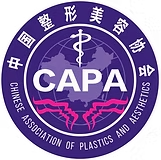
Chinese Association of Plastics and Aesthetics
Beijing, China
Chinese Association of Plastics and Aesthetics was founded under the direction and authorisation of the Chinese Ministry of Health and fully registered with the Ministry of Civil Affairs in 2009.
CAPA is a non-profit organisation with government qualifications. As a national plastics and aesthetics industry association, CAPA is established by organisations and individuals engaged in the research and development, production, operation, investment, product testing, certification and consultation, and training in relation to plastics and aesthetics medicine.
Currently, CAPA runs 22 branches and specialised committees.

WU Jie Ping Medical Foundation
Beijing, China
Wu Jie Ping Medical Foundation, approved by the Ministry of Health and Ministry of Civil Affairs, China, is a non-public offering foundation. It was formally established in Beijing on February 28th 2002. It is a non-governmental organisation and is under direct administration by the Ministry of Health, China. It has been strongly supported by a lot of organisations and individuals from mainland China, Hong Kong, Macao, Taiwan, the U.S. and Singapore. Consequently, Wu Jie Ping Medical Foundation becomes one of the earliest and most influential organisations in China.
Now, its honorary President is professor Han Qide who is also vice-chairman of the National People’s Congress Committee, president of China Association for Science and Technology, chairman of Jiu San Society, Academician of the Chinese Academy of Sciences. And MS Yang Xiaomeng acts as chairman of the council. There are three subordinate departments: General Office, Finance Department, and External Affairs Department.